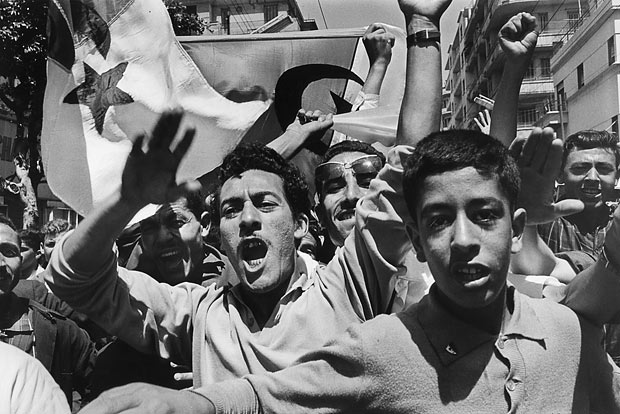Every time a photographer places a few prints in front of me, even before judging the quality of the work I find myself trying to locate the “humanist” -it’s always a question of humanity- on Jean-Paul Sartre’s well-defined scale of values.
Sartre claimed he knew “humanists who love people the way they are, humanists who love them for what they should be, humanists who love the mortality of men and women, and humanists who love the life in them.”
Marc Riboud is one of those humanists who loves life. Clearly, right from his very first photographs. A haughty peacock strutting in Jaipur, a retired coupled slouched in their armchairs, the mists clinging to Huang Shan, his gleeful daugter playing with her giant rabbits: those are what Marc calls the pleasure of seeing.
He is also someone who takes sides, who reveals how hard it is to be an Arab or Congolese, who conveys the horrors of war without dipping his camera in blood. Though there are no flowers in gun-barrels, his contact sheets show us a flower that stands up to the guns.
Everything we know about Marc, we’ve learned through his pictures: his modesty, his sense of proportion, and, above all, his thirst for the truth.
Marc claims he is neither philosopher nor sociologist. True enough. But it is also true that he is an artist.
This book provides proof of that. It reveals an artist who transcends the ordinary, surpasses the anecdotal. Marc’s attentiveness to form confers specificity and exceptional distinction on every single image he composes.
Robert Delpire
